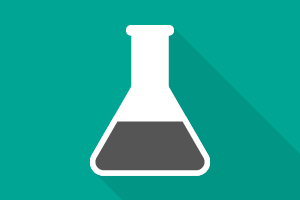Classroom Resources: States of Matter
Filter by:
51 – 61 of 61 Classroom Resources
-

Phase Changes, Elements, Mixtures | High School, Middle School
Activity: Visualizing States of Matter Mark as Favorite (147 Favorites)
In this activity, students will view, sort and classify pure substances and mixtures into the 3 common states of matter found in the laboratory. Students will also discuss their classification system with their teacher and peers.
-

Gas Laws, Sublimation, Ideal Gas, Volume, Temperature, Pressure, Density, Phase Changes, Interdisciplinary, Density, Physical Change, Mole Concept, Dimensional Analysis, Measurements | High School
Demonstration: Ideal Gas Law using Carbon Dioxide Mark as Favorite (15 Favorites)
In this demonstration, students observe dry ice sublime while the CO2 gas fills a balloon. They then calculate the moles and volume of CO2 produced.
-

Physical Change, Physical Properties, Review, Mixtures, Separating Mixtures, Distillation, Sublimation, Phase Changes, Boiling Point, Gas Laws, Temperature, Volume, Pressure | High School
Activity: Physical Properties Mark as Favorite (10 Favorites)
In this activity, students will play a game to review topics relating to physical properties of matter, including mixtures, states of matter, and gas laws. They will be prompted with questions in a PowerPoint and they will use white boards to communicate their answers.
-

Conservation of Mass, Chemical Change, Interdisciplinary, Culminating Project, Phase Changes, Chemical Change | Middle School, High School
Project: Law of Conservation of Mass Comic Strip Mark as Favorite (27 Favorites)
In this project, students will work in groups to create a comic strip that illustrates understanding of the law of conservation of mass.
-

Phase Changes, Molecular Motion | Middle School, High School
Activity: Simulation Activity: States of Matter and Phase Changes Mark as Favorite (73 Favorites)
In this simulation, students will participate in a 10 question quiz. Some questions will challenge students to analyze data to identify the correct state of matter for a specific sample, and then connect the chosen state with an animated particle diagram. In addition, students will examine the behavior of particles in an animated sample as they undergo a phase change, and must correctly identify the change that occurs.
-

Observations, Combustion, Phase Changes, Experimental Design, Scientific Method | High School, Middle School
Lab: Observing a Candle Mark as Favorite (18 Favorites)
In this lab, students accumulate observations of a candle including a look at the combustion reaction's reactants and products.
-

Phase Changes, Sublimation, Physical Change, Density, Observations, Temperature | Middle School
Lesson Plan: Dry Ice Mark as Favorite (0 Favorites)
In this lesson, students will investigate how dry ice undergoes a phase change from solid to gas, skipping the liquid phase under normal temperature and pressure.
-

Physical Change, Distillation, Separating Mixtures, Mixtures, Conservation of Matter, Boiling Point, Phase Changes | High School
Lab: Distillation of Common Soft Drinks Mark as Favorite (58 Favorites)
In this lab, students will see the distillation procedure using a common soft drink and a simple equipment setup.
-

Exothermic & Endothermic, Specific Heat, Density, Phase Changes | High School
Lab: Chemistry is Cooler Stress Test Challenge Mark as Favorite (67 Favorites)
In this lab, students will design and build a device capable of insulating an ice cube submerged in boiling water for two minutes. In this open-ended inquiry based activity, students will be required to critically think about structure and function of the materials they wish to use to build a device to solve a complex real-world problem. Students must consider the thermal properties of the materials, density, and the need to form a non-permeable barrier between the ice cube and the boiling water.
-

Freezing Point, Melting Point, Phase Changes, Acids & Bases, Physical Change | Middle School
Lesson Plan: Stearic Acid Mark as Favorite (2 Favorites)
In this lesson, students investigate how stearic acid undergoes a phase change from solid to liquid and back from liquid to solid. Temperature readings will be collected at one-minute intervals once the acid melts, the heat escapes, and the acid cools. Students are introduced to the idea that energy loss does not always result in a continuous temperature drop.
-

Phase Changes, Physical Change, Observations, Temperature | Elementary School, Middle School
Lab: Condensation Mark as Favorite (2 Favorites)
In this lab, students will explore the process of condensation. Students will investigate how water vapor condenses, and then they will conduct a comparison test to see if cooling water vapor has an effect on the rate of condensation.